Welcome
....to JusticeGhana Group

JusticeGhana is a Non-Governmental [and-not-for- profit] Organization (NGO) with a strong belief in Justice, Security and Progress....” More Details
Indigenous inequality on trial in Peru
- Details
- Category: Law & Justice
- Created on Friday, 06 June 2014 00:00
- Hits: 4453
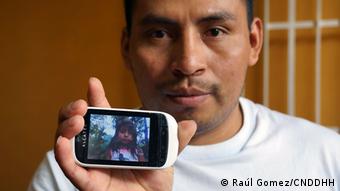 Indigenous inequality on trial in Peru
Indigenous inequality on trial in Peru
Five years ago, clashes between police and indigenous Peruvians left over 30 dead and 200 wounded. Court cases now underway are showing that Lima's "equality" laws have not yet addressed the gaping de facto disparities.
The air in the courtroom is stuffy. It's a hot day in the city of Bagua, a small town in Peru's northern Amazonas province. Ceiling fans, despite rotating at full speed, rapidly lose the battle to heat from the open windows. Despite the stifling heat, additional seating has to be arranged: People have been waiting years for this historic moment.
It's the first in a series of court cases investigating fatal events in 2009, when indigenous people of the Awajun and Wampi tribes, together with local residents, demonstrated against government concessions which handed their land to hydrocarbon enterprises.
On June 5, an unannounced police crackdown left 33 dead and 200 wounded; one person remains missing to this day.
According to an investigation by the Paris-based Worldwide Human Rights Movement (FIDH), the tragedy was avoidable. Protestors had previously announced they would break camp on the day the clashes took place.
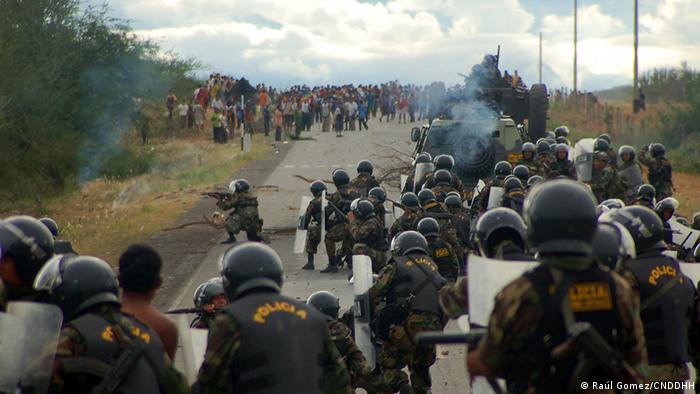
Locked away
Dani Lopez of the Awajun tribe was one of 54 arrested after the violence. He was in prison or under house arrest for half a decade, waiting for the trial to begin.
"During these five years, the arrest has kept me away from my family, without having committed any offense," Lopez told DW. "Five years away from my children."
He knows his youngest daughter, just over four, mostly through pictures and stories from his wife.
For Merino Trigoso Pinedo, a former Awajun leader and one of the accused, the wait has been infuriating.
"The laws say that after 36 months, no citizen, neither indigenous nor other, shall be locked up in confinement," he said. "So who are we? Are we not human beings?"
Legally, pre-trial preparations should have been completed within nine months, says Juan Jose Quispe, the lawyer of three of the accused. But due to the sensitivity of the case, he says, it's been handled like a hot potato: Finding a judge to take it on, for example, has proven difficult.
Nor, the lawyer added, can his defendants expect remuneration for time lost in jail.
"Should he or she in the end be declared innocent, there is no way for that person to ask the state for compensation," he told DW.
Inequality and neglect
In general, the trial raises questions about just how equal, exactly, the accused stand before Peruvian law. The policemen involved, Quispe says, were tried in a separate case with no pre-trial detention.
"None are under arrest," he said, adding, "The Peruvian constitution says that before the law all people are the same. Here, this is clearly not the case."
Rocio Silva-Santisteban, the secretary to Peru's National Coordinator of Human Rights (CNDDHH), attended the trial's initial session. She remains skeptical about the judge's willingness to proceed with prudence and sensitivity.
Even though some of the accused were not native Spanish speakers, for instance, the court failed to provide translators.
"In order for this trial to be just, it requires an intercultural perspective," Silva said. "And that doesn't mean to simply provide translator, but taking into account the different parameters and cultural differences of an indigenous people."
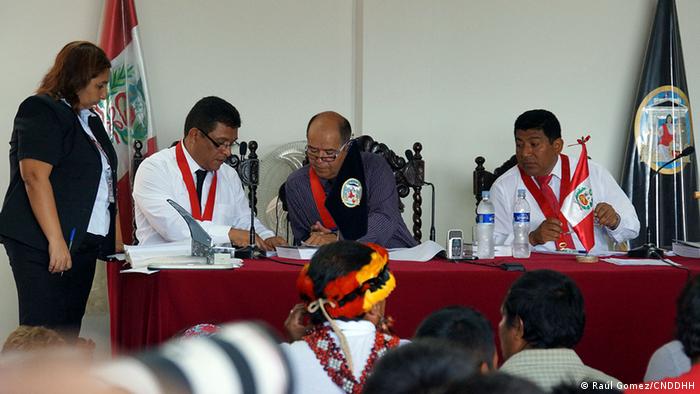
'That's not consultation'
Experts estimate that over 70 percent of Peru's Amazon territories have been licensed to hydrocarbon enterprises. Crude oil and gas production increased by more than a third between 2007 and 2012, according to the Peru's statistics office, with the country's GDP lodging nearly seven percent average annual growth during that period. Mineral exports are also crucial to the economy.
In the case of land disputes between multinational oil companies and indigenous people, a study by Duke University showed that numerous concessions were handed out in areas already titled to indigenous people.
For years, Marco Arana Zegarra, now head of the leftist Tierra y Dignitad party, has been witnessing the land disputes firsthand.
One of the most important steps, he told DW, would be to strengthen the law of "prior consultation." Introduced in 2011, that law was meant to include locals and indigenous people in the decision-making process of where to drill for precious minerals.
Since its inception, however, numerous regulations have weakened the law, he says.
"These regulations reduce it to a mere act of information, meaning that the state has the indigenous people convene to explain to [the indigenous people] what the project will be," he said. "That's not consultation."
Reconciliation: mission possible?
Angela Acevedo Huertas, who heads the Peruvian bureau dealing with "prior consultation," says that, despite its flaws, the practice of consulting original land owners has come a long way since the law's inception.
"There are sectors that are already working with respect to the indigenous people, such as health or education," she said. "Ideally, each sector would have a dedicated team for this topic, a team who could work on this topic and would have enough practice in this to support us."
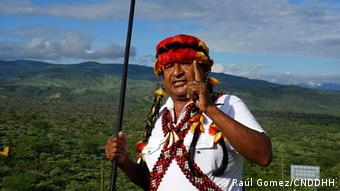 For Rocio Silva-Santisteban at the human rights coordination office, the trial just getting underway in Bagua offers a chance for long-awaited justice and for the government to improve the situation of human rights in the country - especially when it comes to indigenous people.
For Rocio Silva-Santisteban at the human rights coordination office, the trial just getting underway in Bagua offers a chance for long-awaited justice and for the government to improve the situation of human rights in the country - especially when it comes to indigenous people.
It will also force many to address the national economic exclusion of those groups - and to confront commonly-held prejudices.
"This case is very important for the Peruvian people, in the sense that it shows that there exists a sort of rupture within Peruvian society when it comes to accepting that the indigenous people are a living part of it," she said.
Date 05.06.2014
Author Raul Gomez, Bagua, Peru
Editor Conor Dillon
Source: Deutsche Welle
Where's the worst place to be a worker? Most of the world
- Details
- Category: The World
- Created on Thursday, 29 May 2014 00:00
- Hits: 5166
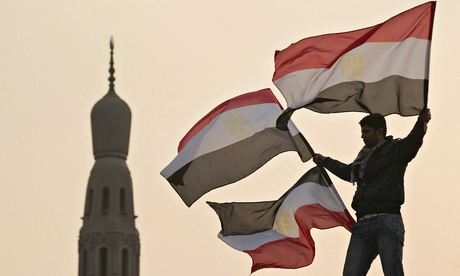 Where's the worst place to be a worker? Most of the world
Where's the worst place to be a worker? Most of the world
A new index of employment rights makes grim reading and exposes the link between rights and inequality
David Wearing
The International Trade Union Confederation's (ITUC) Global Rights Index, which ranks countries on how well they protect employment rights such as freedom of association, collective bargaining and the right to strike, was published for the first time this week. The picture that emerges is a grim one.
Of 139 countries surveyed just one, Denmark, was found to honour all 97 fundamental aspects of employment rights as grounded in international human rights law. Rights violations were found to be no more than an irregular occurrence in just 18 countries.
In about 40% of states, rights were violated systematically or simply not guaranteed. In 53 countries, workers had been dismissed or suspended simply for trying to negotiate better conditions. Shamefully, the UK falls within the category of nations where people's workplace rights are regularly violated, alongside Sri Lanka, Tanzania and Venezuela, and below the category which includes countries such as Albania and Angola.
The index has the potential to become an extremely useful tool. Employment rights are fundamental to people's ability to secure a better deal for themselves within the capitalist system, or at least to protect themselves from the most egregious forms of exploitation. The ITUC's index will help to spotlight and apply pressure on governments that fail to guarantee these basic human rights.
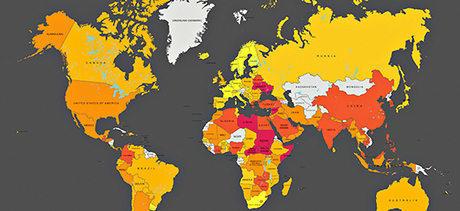
In addition, the data could help us develop our understanding of the extent to which workers' rights are linked to human welfare. At first glance it appears that if we compare like with like – for example, by isolating the OECD nations – we find that those with the best employment protections are often the least unequal (eg Denmark, Sweden and Norway) while those with the most violations are the most unequal (eg the UK, the United States and Portugal). As Kate Pickett and Richard Wilkinson showed in their famous book The Spirit Level, inequality is directly correlated to poor human welfare across a range of social indicators. It is likely that securing fundamental rights in the workplace would play a big part in combating inequality by driving up wages, and so in improving human welfare more generally.
One very important caveat, however, is that the results of the survey need to be understood in a global context. While individual governments must be brought to account, the denial of employee rights is also the product of relations of power that operate across national boundaries.
Many countries in the global south have effectively been coerced into concentrating on "flexible" low-wage economic activity by the states of the global north, not least through institutions such as the IMF, the World Trade Organisation and the World Bank. This downward pressure on rights and wages was a key element in provoking the Arab uprisings in late 2010 and early 2011, for example. To address the problems highlighted by the ITUC it is vital to challenge not only the behaviour of nation states, but also the exploitative dynamics inherent to globalised capitalism itself.
Source: The Guardian UK, 22 May 2014
Tortured execution renews debate in US
- Details
- Category: Law & Justice
- Created on Tuesday, 20 May 2014 00:00
- Hits: 4591
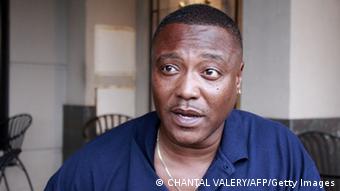 Tortured execution renews debate in US
Tortured execution renews debate in US
Judicial errors and torturous executions have fuelled renewed debate over the death penalty in the US. Former death row inmate Anthony Graves was proven innocent and released after more than 18 years in prison.
SheJuan Oliphant has no doubt that the death penalty is necessary. "Without it, the crime rate would definitely be higher," the young woman says. She works at Texas Car Title and Payday Loan in Huntsville, an hour's drive from Houston, and just a few hundred meters from the very spot where Anthony Graves was meant to have been executed.
Huntsville has gained notoriety as the place where Texas capital punishment is carried out behind the local jail's brick walls. Texas is the state with the most executions - altogether, 1,270 people have been killed by the law here.
More than 280 inmates are currently waiting on death row. And yet Oliphant is adamant: "I have zero tolerance for people going around and killing people for no reason, killing babies and families."
Anthony Graves set up a foundation after his release
 Botched execution in Oklahoma
Botched execution in Oklahoma
A federal appeals court halted Robert Campbell's scheduled execution at the prison earlier this week. Like Oliphant, Campbell is Afro-American. The delay came so late that Campbell's family had already arrived to witness his execution and were waiting in the jail's parking lot. Such a stay, says Criminal Justice Department spokesman Jason Clark, is within the law and not at all unusual.
Campbell would have been the first US inmate to be executed since the botched execution in Oklahoma two weeks ago, where Clayton Lockett died of a heart attack 43 minutes after receiving untested drug injections. His death has given rise to a renewed debate over capital punishment, with the result that President Barack Obama has ordered an investigation into the implementation of the death penalty.
But Clark doesn't doubt the Texas authorities' expertise: "We've carried out 33 executions with pentobarbital single drug and have not had a single incident," he says. "When you're comparing Oklahoma to Texas, it's not the same."
Death row exonoree 138
Graves' execution date in Huntsville was postponed twice. He was finally released from jail after more than 18 years behind bars after his case was reviewed and he was found innocent. Graves was the 138th death row inmate to be released in the US.
Graves spent those 18 years mostly alone in a windowless cell, staring at death in the knowledge of his innocence. His naivete, the belief that he could not be executed for something he knew absolutely nothing about, saved his life, he says. "It was my naivete that allowed me to stay hopeful," Graves says.
Survival on death row
He was shocked when he was arrested and questioned, and devastated when he was sentenced to death after months of uncertainty. So was his family. "It was hell for my whole family," he remembers. "It broke my family up; nobody knew how to deal with this, my mother in particular: her son on death row." People, he adds, were not kind.
Graves was released three and a half years ago, and has since been trying to put the pieces of his life back together again.
His sons are no longer children, but men with children of their own. After such a long time in solitary confinement, he had to get used to society, and moving in larger groups of people. "I don't know how he survived that and remains a happy person today," says Houston attorney Kathryn Kase of the Texas Defender Service.
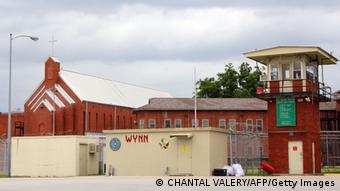 With the funds he received for his wrongful conviction, the former inmate created the Anthony Graves Foundation, which looks after all the matters he missed: family support, lawyer training, and public campaigns. Today, Graves is a sought-after speaker who sits beside respected attorneys and politicians at various events.
With the funds he received for his wrongful conviction, the former inmate created the Anthony Graves Foundation, which looks after all the matters he missed: family support, lawyer training, and public campaigns. Today, Graves is a sought-after speaker who sits beside respected attorneys and politicians at various events.
One of these is Mark Earley, a former Republican attorney general of Virginia, who changed his mind completely on capital punishment. Virginia carried out 36 executions during Earley's tenure, but today, he says the death penalty should be abolished, considering it "very likely unconstitutional."
How many mistakes?
Four percent of all inmates sent to death row are wrongfully convicted, according to a conservative estimate by the National Academy of Science. At present, more than 3,000 people are on death row in the US.
"Anybody can get sentenced to death," says Graves. "Anyone could've been in my shoes."
But the US should be striving for the moral high ground, he adds, because the whole world watches America: "Executing your own citizens is not setting a good example."
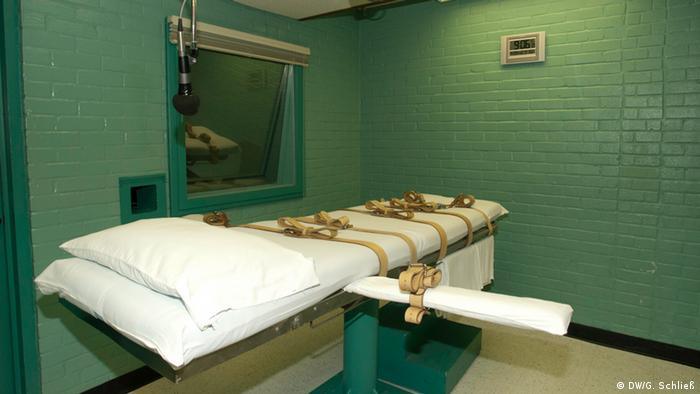
Date 15.05.2014
Author Gero Schliess, Houston / db
Editor Ben Knight
Source: Deutsche Welle
Merkel's EU is not a social welfare union
- Details
- Category: Current Issues
- Created on Thursday, 29 May 2014 00:00
- Hits: 4294
 Merkel's EU is not a social welfare union
Merkel's EU is not a social welfare union
"The EU is not a social union." With those words, Angela Merkel entangled herself in an EU debate on "social welfare shopping." Critics say she's sending the wrong message.
Is Germany facing a wave of immigration from poorer EU member states whose citizens want to reap the benefits of a generous social welfare state? Hardly any other topic has been as bitterly disputed in the current European election campaign.
"The increase in immigrants from Bulgaria and Romania has totaled 141 percent since 2007," warned Andreas Scheuer, the general secretary of Bavaria's Christian Social Union (CSU), in an interview with the Rheinische Post daily.
"We have to eliminate in advance the wrong incentives - that people are drawn by the benefits of our social system, and come here for that reason."
Immigration magnet: Blessing or curse?
Rarely has Germany been such a magnet for immigration: According to OECD statistics, more than 1.2 million moved to Germany in 2013, with two-thirds originating from countries outside the EU.
That puts Germany in second place behind the US.
"Given the good economic development for us, and the poor situation in southern Europe, that was to be expected," said migration expert Herbert Brücker in an interview with DW.
For many Germans, such news inspires both positive and negative sentiments, the latter related to fears the country's social welfare package is proving to be the pull-factor.
New immigrants, however, do not have immediate access to those benefits, even if they come from EU countries. German law allows authorities to deny providing the so-called Hartz-IV unemployment package to those coming to Germany to look for a job.
That regulation was confirmed by the European Court of Justice (ECJ) this week. Germany, according to the ECJ's advocate general, can protect itself from misuse of its social welfare system by migrants.
'Not a social welfare union'
The case in question involved a Romanian woman living in Germany whose application for Hartz-IV benefits was denied on the basis that she was not searching for a job. A final verdict will likely come later this year.
The ruling is a success in Berlin's eyes. The German government has now announced its intention to tighten the rules one notch further: EU residents who are discovered to have committed welfare fraud are to be banned from traveling to Germany for five years. The tougher law would also apply to family allowances, which in Germany can amount to 184 euros ($251) per child per month.
"The EU is not a social union," said German Chancellor Angela Merkel in an interview with the Passauer Neue Presse daily.
Social parasites or starving laborers?
Opposition politicians reacted negatively to Merkel's statement. "This is an attempt, shortly before European elections, to raise a populist debate that is utterly baseless," said the Green Party's social welfare spokesperson, Wolfgang Strengmann-Kuhn.
When DW spoke with Strengmann-Kuhn, he added that Merkel's words were "an attack on social Europe," and that Merkel was now preventing an improvement in social standards throughout the EU. Merkel's coalition partner, the Social Democrats, also distanced itself from her words.
But to what extent do non-Germans actually empty the country's welfare purse? The government statistics office clarified the issue this week. Of the 33 billion euros handed out last year to Hartz-IV recipients, just 1.7 billion went to the 300,000 EU nationals living in Germany.
And, as statistics from the Institute for Employment Research show (in German), Bulgarians and Romanians do not take home a disproportionate share. That said, the number of Bulgarians and Romanians applying for those benefits has been rising quickly.
"If you look at [the numbers] more closely, you find that the vast majority of people who receive social security benefits here are the so-called 'topper-uppers'," says Strengmann-Kuhn. "In other words, they do have work, but don't earn enough to be able to live from it - and then receive supplementary Hartz-IV benefits."
The real problem, he added, is that many eastern European workers are often paid two or three euros per hour.
Cities in support
Germany's cities and communities, however, some of which directly suffer the effects of impoverished eastern European immigrants, had words of praise for the federal government's plans to tighten laws on welfare fraud.
"It's the right signal to prohibit EU citizens from reentry into Germany upon the abuse of social welfare," said the head of the German association of cities and communities, Gerd Landsberg, in an interview with the Ruhr Nachrichten daily.
Landsberg also called for tougher conditions on family allowance payments to long-term immigrants and seasonal workers from EU countries - and questioned whether such payments should be made at all for those raising their children outside of Germany.
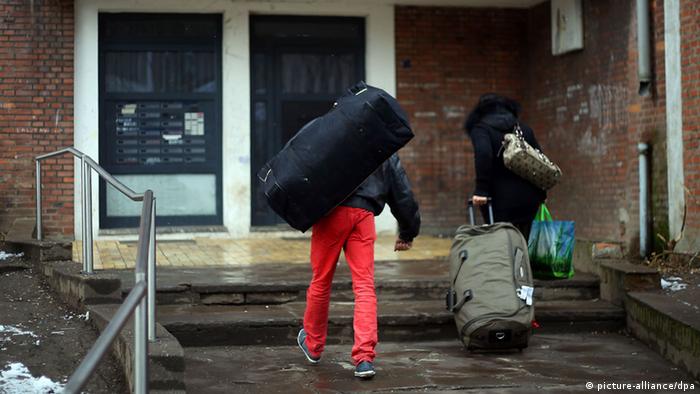
Date 23.05.2014
Author Jeanette Seiffert / cd
Editor Nina Haase
Source: Deutsche Welle
Ahmed Zanna: "There is no political will to fight Boko Haram"
- Details
- Category: DateLines
- Created on Saturday, 17 May 2014 00:00
- Hits: 3368
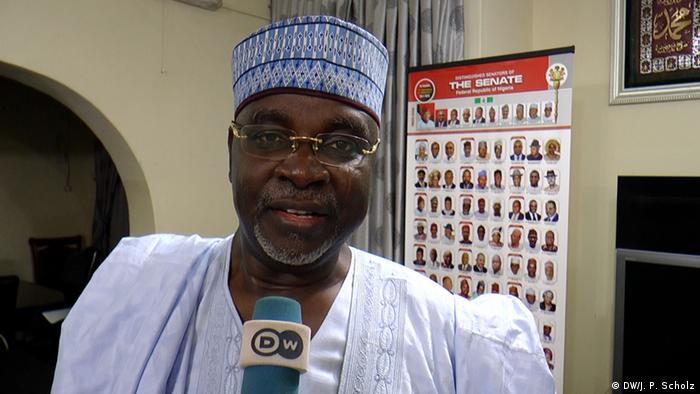 Ahmed Zanna: "There is no political will to fight Boko Haram"
Ahmed Zanna: "There is no political will to fight Boko Haram"
As politicians from Nigeria, Chad, Cameroon, Niger and Benin pledge in Paris to defeat Boko Haram, a Nigerian senator tells DW the government must do more to fight terrorism on a national scale.
Deutsche Welle: It has been alleged that the security forces knew some hours in advance that a Boko Haram attack was going to take place in Chibok. If so, why were the terrorists able to abduct more than 200 girls unhindered?
Senator Ahmed Zanna: Yes, it is really worrisome, and it has been the norm for the past six months or so. On some occasions, Boko Haram would even send a letter to where they were going to attack. That information would be relayed to the security agencies, but unfortunately there would be no response before the attack took place. According to the information we got from reliable sources, the security agencies were informed maybe three or four hours before the attack, and they were not able to do anything. When Boko Haram eventually attacked, all of them just vanished.
{sidebar id=10 align=right}When one of the soldiers heard Boko Haram had attacked Chibok, he fell down and died from a heart attack. He was a military man or a policeman - I can't remember which - but I was told that he fell down and died when he got that information. And then the rest of them ran away.
Nigeria spends about 4.5 billion euros ($6.2 billion) on its military. So why are the army and police not able to do more?
Actually, I'm really perplexed by the attitude of our security agencies, particularly in relation to the protection of lives and property. According to the field commanders that I was able to get in touch with and some army personnel that I had discussions with, they were actually not being given proper arms. And they don't have enough arms. Even uniforms are sometimes lacking. So the morale of the army is very, very low.
I don't know the reason why they refuse to buy the arms and where the money goes. We are now trying to investigate and find out. That will verify whether they have bought the items and are hording them somewhere or [establish that] they did not even buy them. So it is really surprising to me as a citizen of Nigeria – and not only to you as a European.
There are reports that high-ranking officials, including you, know the possible whereabouts of those abducted girls. What can you say about that?
Actually, I was being informed by our own people. In turn I also informed the security agencies that the girls were sighted at certain locations and that it was left to them to go and get them. I told them that they had moved from this place to that place and from that place to the next area. So that information has been available to them, and as I told other media, I don't want to say where, because maybe they have moved.
I am very close to my constituents, and if they get any information, they let me know - because they know I am concerned. So that is my source of information.
But you don't want to say anything about the latest information you got about where they might be?
Yes, because it may endanger them. It may endanger the girls, because they may be moved to somewhere else again. So I think it is better for me to be quiet.
If there is information about where the girls are, where they were or where they could be, why doesn't the government act on that information?
As I told you, they lack fighting equipment and necessary items for detection. The technology is not there for our army. Now that the international community has come to our assistance, maybe they will be able to get to those girls and rescue them safely. Anyway, according to the information we just got, they said they are sure to get the girls back. That is the information they gave us. So we are hopeful.
Do you think the support of the United States and the other countries is needed?
In my opinion, we need it. This has been lingering for three years without an end to it. And particularly within the last six months, it has been escalating. If they had the capability, they could have brought it to an end. But since they have been fighting for three years and there is no end to it, I think the international community's attention is really required and their support is very, very necessary.
At the moment, the whole world is talking about Boko Haram. How can you define Boko Haram? Is it really an Islamist terrorist group or are they a bunch of criminals? Or is Boko Haram something entirely different?
Initially, they started as an Islamic organization, but very gradually they became bandits. They have now turned into criminals. You cannot just go into a village and open fire on everybody, whether it is a Muslim, a woman or a child you kill. And you also destroy people's livelihoods. I mean this is madness. These are pure criminals now; they are no longer Islamists.
And why are they so well-equipped?
That is what surprises us. They collected most of the equipment from our army and police. I know they bought some from Chad …, but most of the equipment was snatched from our army and police.
Even the president mentioned that he presumes there are Boko Haram supporters very close to him. Are there really any politicians or high-ranking army officials that support Boko Haram?
As far as I know there is no politician who is funding these bandits. It is the system that gave them strength because of the lackluster attitude of the army. That gave them strength, or they wouldn't be the strong force they are now. This is really a failure of the system. … The government also does not care, because it is happening in a particular area and it is the people there who are killing their own people. These people are not their supporters. Therefore they allow it to continue.
So what you are saying is that nobody directly supports them but there is also the lack of political will to fight them?
Exactly. There is no political will to fight them. On several occasions, I have said that if there is the will, the military will win.
What is the way forward then? If there is a lack of political will, how can the problem ever be solved?
I want the government to look at it as a national issue. If one part of your body is affected, you can't neglect it because it is only a small portion of your body. Let it be seen as a national issue and let it not be seen as a local issue. Let it not be seen as a religious issue. It is an issue that affects the nation, and it has affected the economy of Nigeria.
Ahmed Zanna has been serving in the Nigerian Senate for three years. Along with two others, he represents the state of Borno. He comes from the region that is hardest hit by Boko Haram attacks.
Date 16.05.2014
Author Jan-Philipp Scholz / gu
Editor Isaac Mugabi
Source: Deutsche Welle


